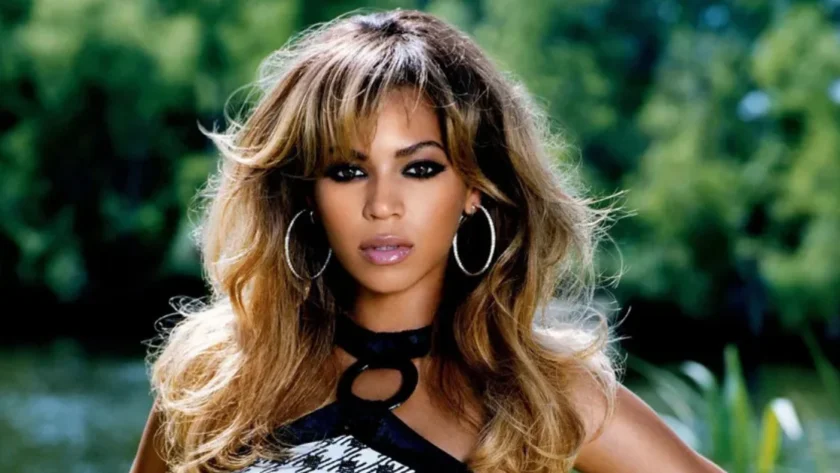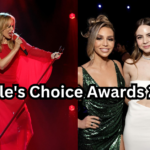Texas Hold Em vs Donk
Beyoncé has made waves in the music industry once again, this time with her foray into the country genre. Her latest singles, “Texas Hold ’Em” and “16 Carriages,” have quickly climbed the charts, with “Texas Hold ’Em” securing the top spot and “16 Carriages” not far behind at number nine on the Billboard Hot Country Songs chart.
In addition to her latest country music venture, fans and TikTokers alike are showing interest in a particular tune that hasn’t made it onto any charts: Beyoncé’s unreleased song “Donk” from her self-titled era. This track reportedly came about during the recording sessions for Beyoncé’s fifth studio album, which was released in 2013.
Despite not being officially released, “Donk” has garnered attention from fans who have been eager to hear the track ever since rumors of its existence began circulating.
Leaked Track Sparks Viral Dance Trend
Although “Donk” was registered with the American Society of Composers, Authors, and Publishers (ASCAP) as an official track, with Beyoncé listed as the creator, it never saw an official release. However, in September 2023, the song was leaked on X, formerly known as Twitter, causing a stir among fans. Since then, TikTokers have seized upon the track, creating a viral dance trend that has further propelled “Donk” into the spotlight despite its unofficial status.
As of now, one version of the song has been credited in over 96,000 posts on TikTok. However, it’s worth noting that other versions of the sound are missing from several videos, including those with hundreds of thousands of views. This discrepancy suggests that while “Donk” has gained significant traction on the platform, its availability may be limited or restricted in certain cases.
Get the latest entertainment news from Bollywood, Hollywood, music, and web series at Ketsha.
Labels Hold Power Over Unreleased Music
Recently, there have been reports of music removals from TikTok due to negotiation disputes between music labels and the platform. Universal Music Group (UMG) initiated the removal of its songs from TikTok on January 31st, citing an impasse in their licensing deal negotiations. As a result, tracks from popular artists such as Drake, Taylor Swift, and Muni Long, whose single “Made for Me” was viral at the time, were taken down from the platform. This move has sparked discussions about the complexities of music licensing agreements in the digital age and their impact on artists’ visibility and audience engagement on social media platforms like TikTok.
While “Donk” by Beyoncé is an unreleased track, both the artist and her label possess the authority to take action similar to Universal Music Group (UMG) in removing the song from the platform if they choose to do so. This highlights the control that artists and their associated record labels have over the distribution and availability of their music, even in cases where the song has not been officially released to the public.
According to Vickie Nauman, a music tech consultant and founder of CrossBorderWorks, labels have the authority to request take-downs of unreleased songs. Nauman’s consultancy firm, CrossBorderWorks, specializes in assisting clients in navigating the intricate global digital music landscape.
Despite the unavailability of some major sound clips featuring “Donk,” resourceful TikTok users have managed to incorporate the song into their posts. Whether through remixes, alternate titles, or even personal recreations of the track, these users have found creative loopholes to include their favorite songs in their content.
Platform Balancing Act
Scrubbing the platform of all unreleased music poses a significant challenge for several reasons. Despite the fact that these songs are copyrighted, platforms are not always held liable for their presence. This presents a complex legal and logistical issue, as platforms must navigate the delicate balance between copyright enforcement and user-generated content while also considering their own legal obligations and potential liabilities.
“Platforms that allow end users to upload music and assets are afforded some level of protection under safe harbor laws,” explained Nauman. She added that there will continue to be pressure from licensors to remove content and manage it effectively, driven by ongoing business relationships.
According to the Digital Millennium Copyright Act (DMCA), internet companies receive protection against potential instances of their users unlawfully copying creative works. While this doesn’t fully exempt companies from responsibility, it does make it more challenging for artists and companies to identify and address every infringement.
Related : Virat Kohli and Anushka Sharma Welcome Baby Boy “Akaay”
Disclaimer: The information presented here is compiled from various top news portals and websites. While we strive to provide accurate and up-to-date content, we do not claim ownership of the information presented, nor do we guarantee its absolute accuracy or completeness.




